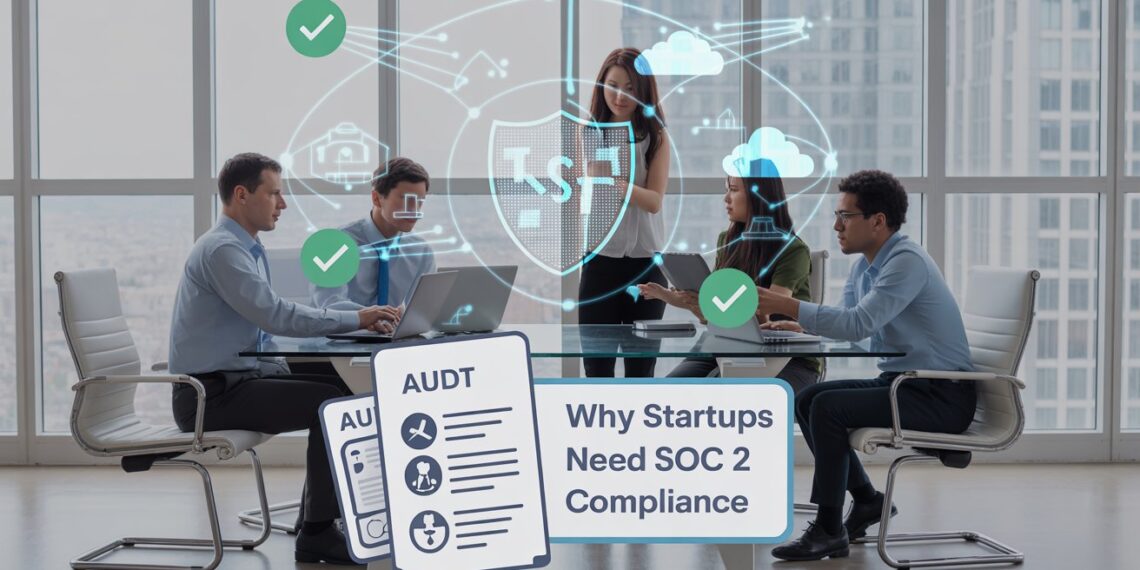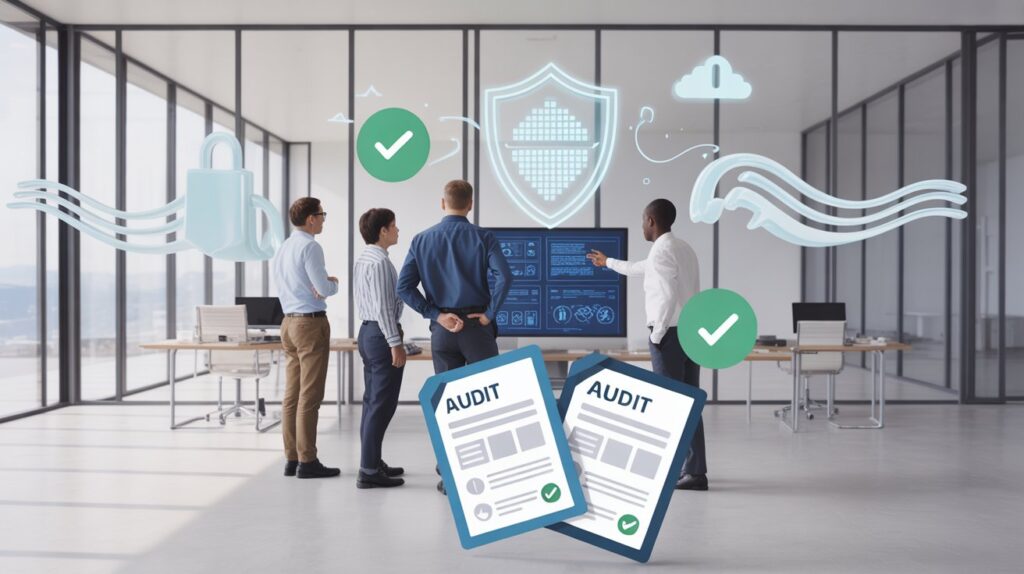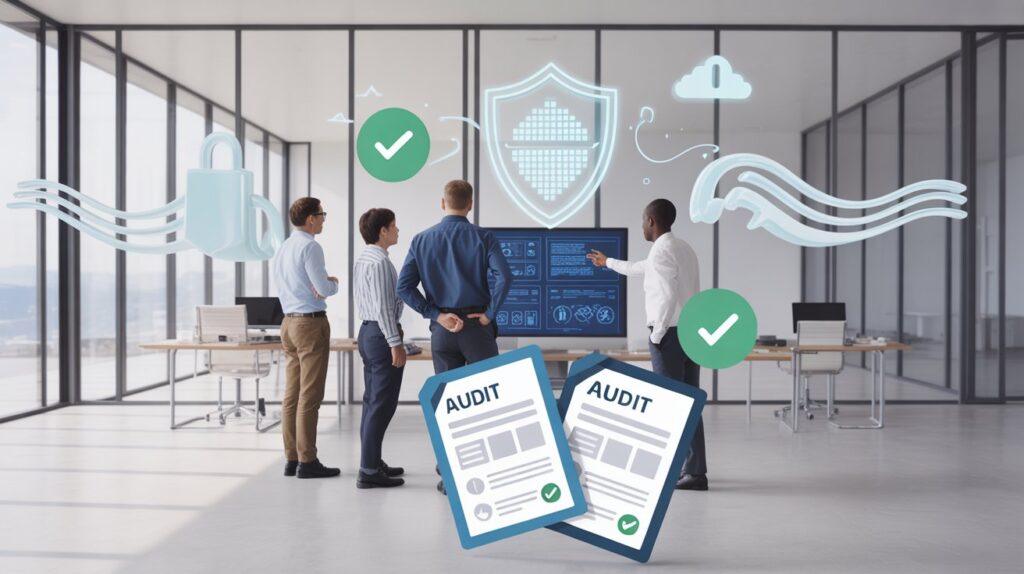In today’s hyperconnected and data-driven world, startups face mounting pressure to prove that they can be trusted with sensitive customer information. Investors, enterprise clients, and regulators all expect strong data protection practices, even from young companies still scaling their teams. One of the most effective ways to demonstrate this commitment to security is through SOC 2 compliance — a gold standard for managing and protecting customer data.
Understanding Why Startups Need SOC 2 Compliance is more than a matter of passing an audit. It’s about establishing a culture of trust, winning enterprise clients, and avoiding costly breaches that can destroy a company’s reputation. This guide explores what SOC 2 compliance means for startups, why it matters, how to achieve it efficiently, and how it can become a growth accelerator rather than just a compliance checkbox.
What Is SOC 2 Compliance?
SOC 2 (Service Organization Control 2) is a framework developed by the American Institute of Certified Public Accountants (AICPA). It focuses on how companies handle customer data based on five Trust Services Criteria:
-
Security – Safeguarding data against unauthorized access.
-
Availability – Ensuring systems are available for use as promised.
-
Processing Integrity – Guaranteeing that data processing is complete, accurate, and timely.
-
Confidentiality – Protecting information classified as confidential.
-
Privacy – Managing personal information responsibly and in accordance with privacy policies.
SOC 2 comes in two types:
-
Type I assesses whether security controls are properly designed at a specific point in time.
-
Type II examines how effective those controls are over a period (typically 3–12 months).
For startups, SOC 2 Type I is often the first milestone, with Type II following as they mature and scale.
Why Startups Need SOC 2 Compliance
Startups often move fast — iterating products, raising funds, and scaling quickly. However, without proper security and compliance measures, growth can stall due to lost deals or investor hesitancy. Here’s why SOC 2 compliance is becoming a must-have for modern startups.
1. Establishing Trust with Customers and Partners
Trust is currency in business. Startups handle increasing volumes of customer data — from payment details to personally identifiable information (PII). Clients, especially enterprise customers, want assurance that their data will be protected.
SOC 2 compliance provides that assurance. It shows that your startup has formalized security protocols, continuous monitoring, and independent validation by certified auditors. This level of transparency builds trust and confidence, helping startups win and retain customers.
2. Unlocking Enterprise Sales Opportunities
Large enterprises often require vendors to be SOC 2 compliant before signing a contract. Without it, startups can face months of security questionnaires, due diligence reviews, and stalled deals.
A completed SOC 2 report simplifies these hurdles. It acts as proof that your organization meets industry-recognized security standards. For B2B startups, this can be the key to unlocking enterprise-level clients, shortening sales cycles, and accelerating revenue growth.
3. Strengthening Investor Confidence
Investors prioritize startups that can scale securely. Data breaches, compliance failures, or weak security infrastructure can reduce a company’s valuation or even derail funding rounds.
When startups pursue SOC 2 compliance early, they demonstrate operational maturity and foresight — qualities that attract investors. It signals that the startup takes risk management seriously and is ready to engage with enterprise partners responsibly.
4. Reducing the Risk of Data Breaches
Cyberattacks are one of the biggest threats to startups today. According to multiple security reports, over 40% of cyberattacks target small businesses and startups. A single breach can lead to massive financial losses, legal complications, and irreversible reputational damage.
SOC 2 compliance helps reduce this risk by ensuring consistent, standardized controls for data protection, encryption, access management, and incident response. It enforces a proactive security posture that protects not just data — but your business’s future.
5. Improving Operational Efficiency
SOC 2 compliance requires startups to implement organized documentation, internal controls, and risk management processes. While it might seem like additional work, these improvements often lead to more efficient operations.
By establishing structured processes, startups gain clarity in team responsibilities, data flows, and security ownership. The compliance journey also promotes automation and better decision-making, setting the foundation for sustainable growth.
6. Differentiating in a Competitive Market
Startups operate in saturated markets where differentiation matters. Having SOC 2 compliance can be a powerful marketing tool. It signals to clients and competitors alike that your organization is serious about data security and governance.
In sectors like SaaS, fintech, and health tech — where data sensitivity is high — SOC 2 certification is often a competitive advantage that helps startups stand out from the crowd.
When Should a Startup Pursue SOC 2 Compliance?
There’s no universal timeline, but here are practical guidelines based on growth stage:
Stage |
Recommendation |
Rationale |
|---|---|---|
Pre-Seed/Seed |
Focus on security best practices and documentation |
Too early for a full audit, but start building the right foundations |
Series A |
Begin SOC 2 readiness and policy development |
Investors and enterprise clients will soon demand proof of compliance |
Series B and Beyond |
Complete SOC 2 Type I and Type II audits |
Essential for scaling securely and closing larger contracts |
In general, once your startup starts managing sensitive customer data or targeting enterprise customers, it’s time to begin the SOC 2 journey.
The SOC 2 Compliance Process for Startups
Achieving SOC 2 compliance may sound daunting, but breaking it into clear steps makes it manageable.
1. Conduct a Readiness Assessment
A readiness assessment identifies existing gaps in your security controls and documentation. It helps determine whether your startup is prepared for an audit or needs to strengthen specific areas first.
2. Define Scope and Objectives
Decide which systems, processes, and departments fall under the scope of the SOC 2 audit. A smaller, focused scope can save time and costs, especially for early-stage startups.
3. Implement Security Controls
Introduce technical and administrative controls aligned with the Trust Services Criteria. This may include:
-
Access control policies
-
Encryption and key management
-
Incident response procedures
-
Employee training and background checks
4. Documentation and Evidence Gathering
SOC 2 auditors require evidence that your controls exist and function properly. This means maintaining logs, policies, and reports demonstrating compliance activities such as security training or vulnerability testing.
5. Choose an Auditor and Perform the Audit
Select an AICPA-accredited auditor experienced with startups. Type I audits can typically be completed in 3–6 months, while Type II may take 6–12 months depending on control maturity.
6. Maintain and Monitor Compliance
SOC 2 is not a one-time certification. Continuous monitoring and annual audits ensure that controls remain effective as your startup evolves.
Common Pitfalls to Avoid
-
Treating SOC 2 as a checkbox exercise – The real goal is security maturity, not just passing an audit.
-
Starting too late – Waiting until enterprise deals depend on it can cause delays and lost opportunities.
-
Over-scoping – Trying to audit every system at once can be expensive and inefficient.
-
Ignoring culture – Employees must understand and participate in security practices for them to be effective.
The ROI of SOC 2 Compliance
While achieving SOC 2 compliance involves investment, the returns are significant:
-
Faster sales cycles: Reduces time spent on security questionnaires.
-
Higher deal volume: Opens doors to enterprise partnerships.
-
Reduced risk exposure: Minimizes potential for costly data breaches.
-
Investor appeal: Signals professionalism and readiness to scale securely.
SOC 2 compliance is not a cost center — it’s an investment in long-term credibility, trust, and business growth.
Frequently Asked Questions
What is the main purpose of SOC 2 compliance?
SOC 2 compliance demonstrates that a company protects customer data through effective internal controls and processes aligned with industry standards.
Is SOC 2 mandatory for startups?
While not legally required, many enterprise clients and investors demand it as a prerequisite for doing business. For most startups, it’s a strategic necessity.
How long does it take to get SOC 2 compliant?
Depending on readiness and scope, SOC 2 Type I can take 3–6 months, and Type II may take 6–12 months.
How much does SOC 2 compliance cost?
Costs vary based on company size, systems, and chosen audit partner. Startups can expect anywhere between $20,000–$80,000 for a complete process.
Does SOC 2 replace other compliance frameworks?
No. SOC 2 complements other frameworks like ISO 27001, GDPR, or HIPAA. It’s often the first step toward a more comprehensive security strategy.
Conclusion
In a world where trust and data protection define success, Why Startups Need SOC 2 Compliance cannot be overstated. SOC 2 compliance isn’t just about meeting a standard — it’s about building a business that clients, investors, and partners can depend on.
For startups, pursuing SOC 2 early sets a strong foundation for growth. It accelerates sales, fosters investor trust, and strengthens security resilience. Most importantly, it demonstrates to the world that your company values what matters most — the integrity and safety of customer data.
By viewing SOC 2 as a strategic initiative rather than a regulatory burden, startups position themselves not just to survive — but to lead — in today’s trust-driven digital economy.











